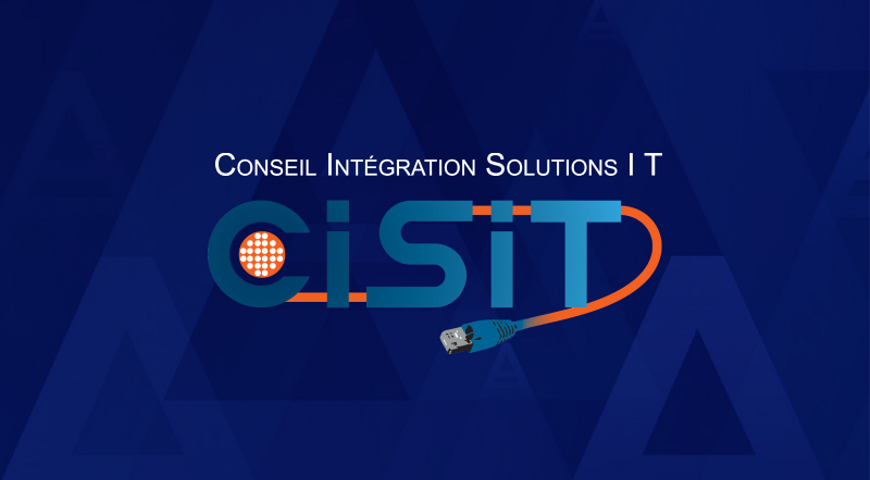As you're looking to cut costs and increase employee satisfaction, you might be looking into allowing more employees to work remotely. Recent research indicates that remote employees are more productive and save your company money. However, the study also suggests that most employees prefer working only part-time from home. To ensure security and information sharing, you're looking for a solution that enables cloud file sharing for businesses like yours.
What is cloud file sharing?
Being tethered to company-provided devices no longer enables business productivity. Thus, you're starting to look at ways to make your data available in various locations. A sync client is a software that ensures information on a device automatically updates to the cloud. However, it can often include other points of access. For example, some collaboration platforms offer drag-and-drop, individual folder sharing, or team folder creation. Additional benefits include allowing multiple users to work on the same document simultaneously, offering specific geographic data centers, and distributed data deployment for faster upload/download capabilities.
Cloud-based file sharing lets everyone in the organization sync and share information – no matter their location. With cloud file sharing, your employees can now access and edit files from anywhere they have an internet connection. At the same time, the cloud's collaboration features allow others in the organization to access those changes in real time.
How is file-sharing for businesses different from file-sharing for individual users?
When a user needs to share files via the internet, they can choose virtually any medium to do it. You can send a file via email, social media, Skype, and all the free file-sharing platforms out there. Sharing files for individual users doesn't imply enhanced security measures - as long as you trust the platform and the users you're sharing files with, it's absolutely fine to do it how you see fit. For example, you can create a shared folder in Google Drive and use it both as storage and a collaboration site. However, businesses handle much more sensitive information.
A company-shared folder may hold intellectual property information, user account credentials, and project file specifics. This implies two crucial data-handling aspects - accessibility and security. To cover them both, businesses need a reliable storage provider that understands and handles file integrity protocols, user preferences, and cybersecurity features to protect even a single file in storage at all times.
Is cloud storage secure?
Typically, cloud storage as a file-share option is praised for file accessibility. Nonetheless, dedicated cloud storage providers also fortify backup files via AI-powered cybersecurity tools.
Having your files encrypted before, during, and after transit to the backup facility means they will be protected even if intercepted by cybercriminals.
Additionally, cloud storage protects your files against locally-based natural disasters and mitigates accidental deletion.
Free internet file-sharing platforms
Not all businesses have the budget to go for paid cloud storage services. However, SMBs have tons of free-plan options to share files and make use of free storage. The three primary picks are Google Drive, Dropbox, and Microsoft OneDrive.
Let's explore them below.
Google Drive (Google Docs)
If your business already uses the Google ecosystem, Google Drive is an excellent file-share option.
It integrates all of Google's productivity features, with Google Docs being the most used. A free account offers 15GB of free storage space across all Google services. (so, maybe don't use Google Photos to store personal pictures on the same account)
MacOS and Windows users can set up the Backup and Sync desktop client to select folders to sync file data to Google Drive. Once synced, all permitted users will easily access files and shared folders.
With a paid plan, you can get up to 5TB of cloud storage along with Google Workspace utilities - Drive, Gmail, Docs, Callendar, and other collaboration features.
Dropbox
Dropbox is one of the big players in the business market today. It offers high-end security and data management features alongside a comprehensive ecosystem of integrated third-party apps. For example, users can create Microsoft Office documents and Google Docs/Slides/Sheets within Dropbox and use the shared Spaces interface to improve collaboration.
However, the free account offers 2GB of storage space - it's good if you're mainly creating documents, but it will quickly fill up if your SMB relies on bigger media files and folders.
Dropbox offers various paid plans, with the Advanced option granting unlimited storage for 3+ users.
Microsoft OneDrive
OneDrive integrates seamlessly with Microsoft 365 and Microsoft 365, as well as all Microsoft mobile device apps. It also allows for real-time collaboration in Microsoft Office documents. The free plan presents users with 5GB of storage space.
Paid plans offer ransomware detection and backup recovery, enterprise-grade security, two-factor authentication, and an auto-lock feature.
Pros and cons of free internet file-sharing services
While most casual users find free file-share options as the go-to choice, such services come with several disadvantages, especially for larger businesses.
Pros
- Easy to use
- Affordable
- Requires little support and infrastructure overhead
- Flexible file sharing
- Offline storage available
- Convenience
Cons
- Limited storage space
- Poorer cybersecurity features
- Basic collaboration tools only
Paid file-sharing services
Paid cloud storage services enable businesses to share files at the highest level. Your company can benefit from robust security, customizable access permissions, unlimited storage, automatically synchronized folders, server message block (SMB protocol) support, enterprise file sync, file recovery, and other features to streamline its workflow management.
Enhanced accessibility
The core purpose of file sharing is to enable users to access files unhindered - anywhere, anytime.
While basic online storage services offer a particular level of functionality, dedicated file-sharing vendors cover all collaboration aspects.
One user can share multiple files while their co-workers can access and simultaneously edit them in multiple ways. As long as you've set the proper user permissions, you can rest assured that all your files are available to boost your performance without downtime.
High data security
A free account rarely packs advanced security options. The best cloud storage services focus on data encryption and malware detection to ensure that shared files are never compromised by pesky attackers.
With top-tier encryption, you ensure that all business-critical and user-confidential data stays protected at all times.
Reliable data loss prevention
Cyber attacks aren't the only threat to data integrity. Natural disasters and users error can also affect work files significantly. While you have no control over natural disasters, you can boost user awareness to mitigate errors. Nonetheless, mishaps do happen, so backup and recovery are crucial to guarantee file availability.
The best cloud storage providers offer regular, automated backups. If you create multiple data backups and follow the 3-2-1 Rule of Backup, you can easily retrieve important files in a data-loss event.
What are the benefits of cloud storage file sharing?
While some benefits of online cloud file sharing can be seen in your general ledger, others may be less obvious. Up-front costs may inhibit initial adoption for some companies. However, cloud file sync-and-share offers a variety of benefits that don't provide a distinct value. Before choosing a cloud storage file-sharing provider, you must weigh all the information.
Cost savings
In the past, traditional storage options required the user to buy hardware to enable their business. As you scale, new server costs and more memory become cost prohibitive. With cloud file sharing and storage, you can incorporate additional memory as needed. This flexibility lets you spend what you can afford when you need it, rather than forcing you into a high-cost, long-term investment that limits scalability.
Team file sharing
Whether you're a small business with work-from-home employees or a large multinational company, your employees may not always be in the same place at the same time. With team file sharing, cloud services offer you a way to connect everyone, no matter where they are. The ability to share information rapidly and efficiently enables you to streamline your business activities. Employees in different time zones can work from the same document version at different times. You no longer have to worry about multiple versions of the same file, which can lead to data loss.
Rapid response
Good customer service means rapid response to concerns. While it may be 5:30 pm in the area your business is located, it might be 2:30 pm for your customer. When you need access to your files after business hours, you need a way to access them without going back to the office. Mobile apps for tablets and smartphones that allow you to access your data remotely lead to increased customer satisfaction. In fact, according to research, 85% of customers will pay more for a better experience. More rapid, informed responses to questions using online cloud file sharing connected to mobile apps are a hidden benefit of the cloud.
Things to consider when choosing the best cloud storage file-sharing services
When something sounds easy, it probably has a catch. In the case of businesses integrating online cloud file sharing, the traps are data security and ease of migration. In some cases, for example, you may not be able to sync and share all documents and files without meeting security requirements. In other cases, you may want to control proprietary information.
Data security
Increased number and severity of breaches, as well as ransomware attacks, mean you need to look at your cloud service provider's data security protections. You need a cloud-sharing solution that incorporates in-transit and at-rest data encryption and provides an audit trail. You also need a way to manage user access and authentication to ensure only the right people can view your information. Equally important, you need to secure your employee-owned devices as part of your Bring-Your-Own-Device (BYOD) policy to ensure that employee cyber hygiene doesn't weaken your data security.
Level of service
Not all cloud file sync and share services work the same way. For example, an Infrastructure-as-a-Service platform offers enterprise-wide integration capabilities, which can include file sync and share services, as well as other services. Yet, some third-party service providers may only provide the sync and share capability.
Reviewing the service level agreement (SLA) can help you evaluate the services provided, which allows you to make a decision based on your company's complete range of needs.
Information security compliance
Highly regulated industries and geographic areas focus on this as a deal-breaker. Regulatory requirements and information security best practices focus on data privacy and confidentiality, especially for personally identifiable information.
For example, a healthcare provider or its business associate needs a service provider compliant with the Health Insurance Portability and Accountability Act (HIPAA). Companies in the European Union need a provider compliant with the General Data Protection Regulation (GDPR). Whether it's a regulatory requirement or gaining customer confidence, you want to ensure that you do your due diligence when choosing an online cloud file-sharing provider.
Cost-effectiveness
Different file-sharing providers offer various subscription plans for popular services. While businesses may benefit from most additional features, individual users may prefer sticking to a free plan. The same goes for SMBs that don't need more storage for their files and folders.
It's imperative to choose a file-sharing platform packed with the right tools, additional features, and other apps to support your business processes and collaboration. If your business demands unlimited storage (maybe you rely on extensive video files to keep them available for editing), a free account won't be any good. If you simply need a platform to store files and grant access to other users, you can do without fancy features and settle for a more conservative subscription.
Ease of migration
Choosing the best cloud file sharing for small businesses means looking at how quickly you can move your information to the cloud. If you're not a tech company with limited IT resources, you need a solution that simplifies the process. You need to review your company and employee operating systems to ensure that your choice is compatible with Windows, Android, macOS, and iOS to incorporate the full range of devices.
Ease of use
Managing access and authentication can feel cumbersome. When choosing a cloud storage service, you want to be able to get it up and running as fast as possible. Fumbling with settings on a difficult-to-navigate platform can lengthen the process and lead to incorrect settings. When researching a cloud file-sharing service, you want to find one that requires minimal training and offers a straightforward management console.
Finding the proper file access, sync, and share solution can increase your business productivity and customer satisfaction. Acronis Cyber Protect Cloud Advanced File Sync & Share, through our partners, offers you the security controls you need with the ability to improve employee productivity. Acronis Advanced File Sync & Share works across popular mobile devices, Macs, and PCs. For Microsoft Office users, its integration with the MS Office mobile apps allows your employees to edit from anywhere while you maintain ultimate file control. For companies needing to meet regulatory or industry standard-based compliance objectives, Acronis Advanced File Sync & Share also offers audit trails to prove user management, application, and data protection compliance.
About Acronis
A Swiss company founded in Singapore in 2003, Acronis has 15 offices worldwide and employees in 50+ countries. Acronis Cyber Protect Cloud is available in 26 languages in 150 countries and is used by over 21,000 service providers to protect over 750,000 businesses.



